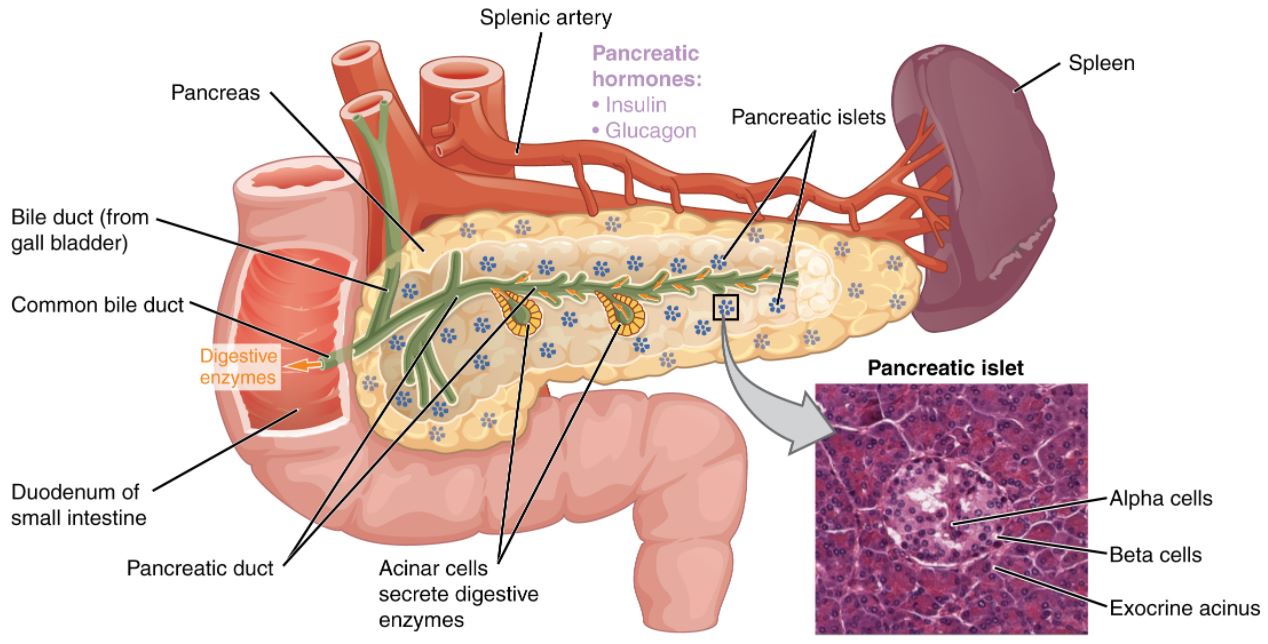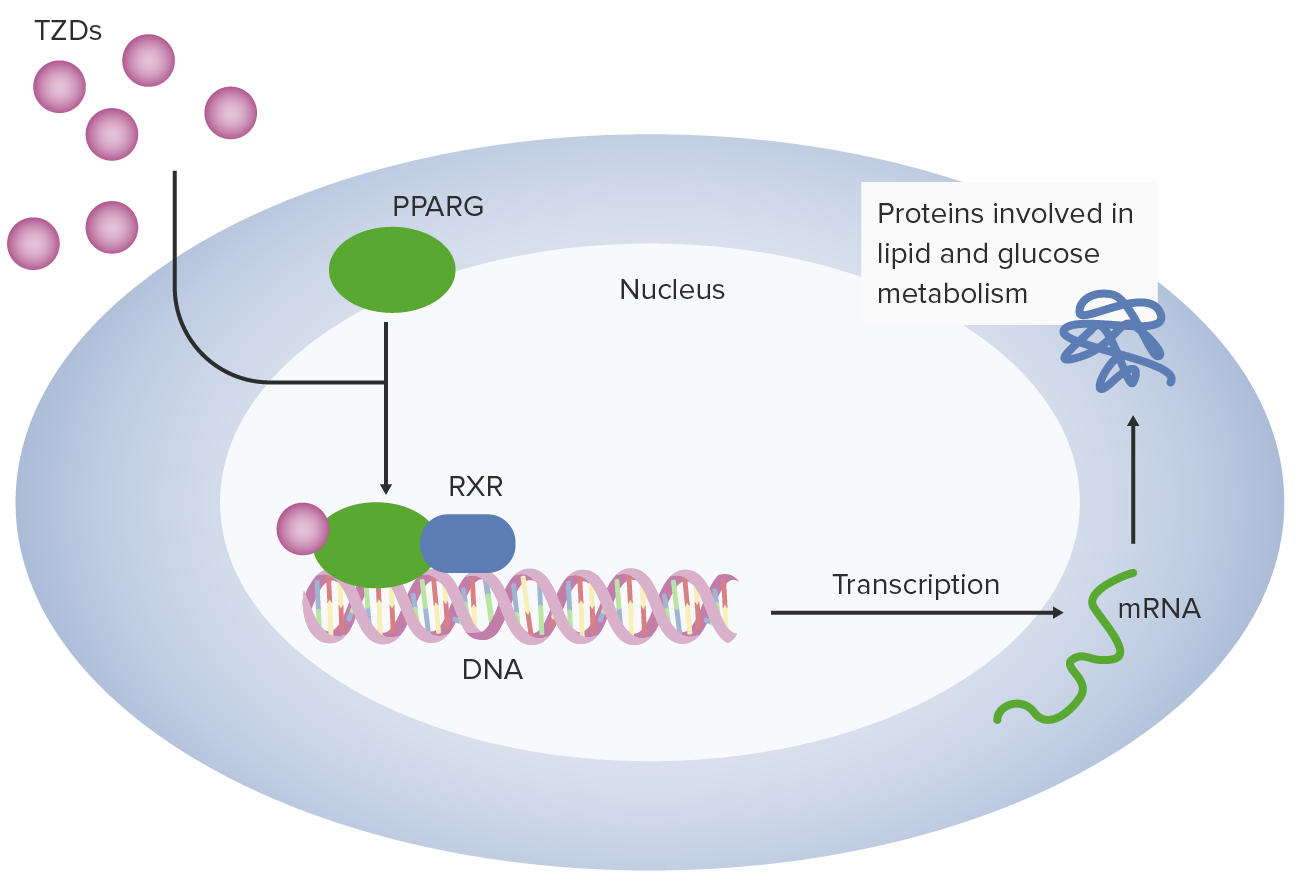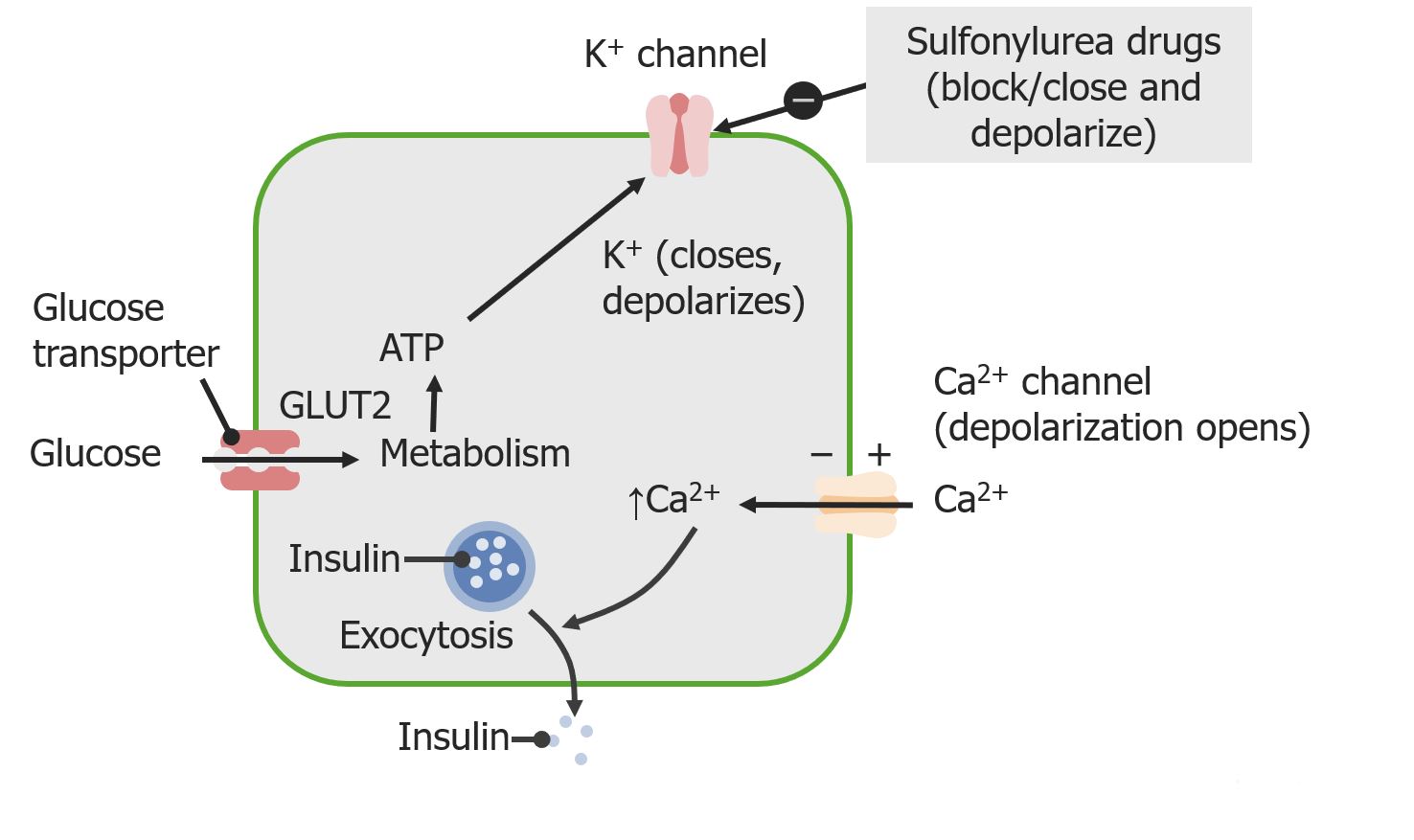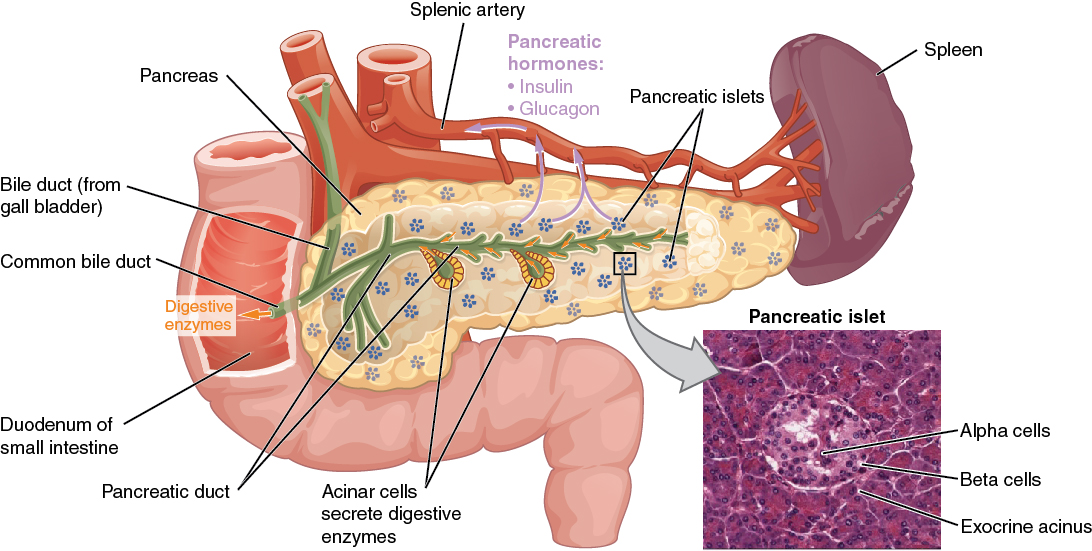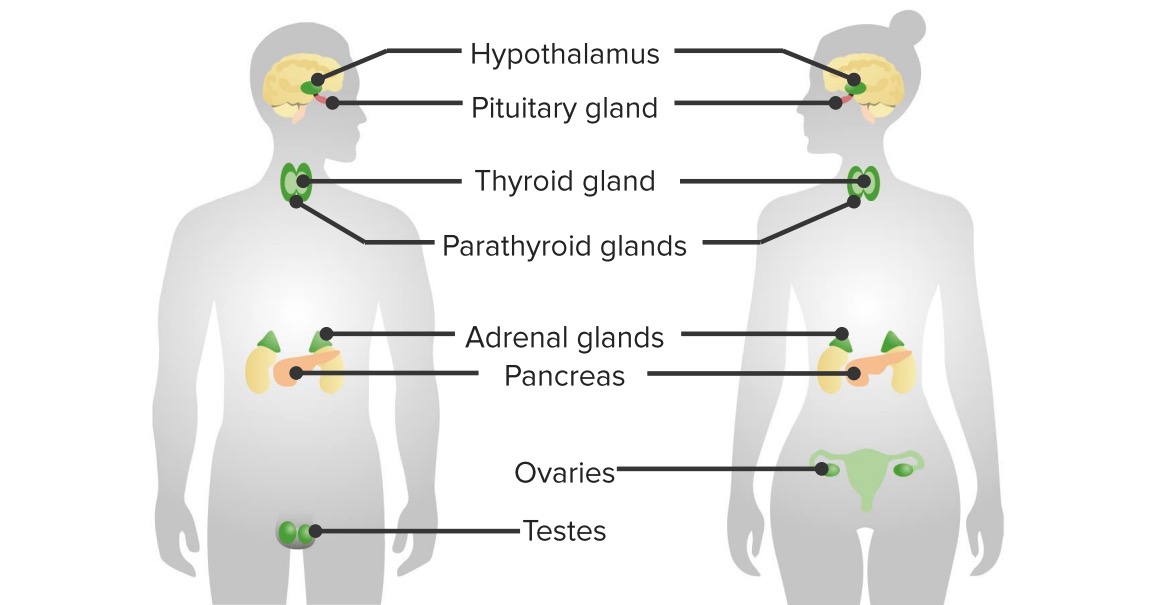Playlist
Show Playlist
Hide Playlist
Types of Diabetes Mellitus – Hyperglycemia
-
Slides HyperglycemiaDiabetesMellitus EndocrinePathology.pdf
-
Download Lecture Overview
00:02 Let’s talk about the types of diabetes - type I, type II. 00:07 Type I completely deficient of insulin. 00:11 There are a couple of things here that I need to bring to your attention when I talked to you about pathogenesis, but for right now, stick with me here when I tell you with type I, IDDM, insulin dependent diabetes mellitus. 00:27 Obviously, this patient is young and by young, look at the first… second column, excuse me, and you notice that it’s a age range of less than 30. 00:40 So, when I say young, hmm, be careful. 00:43 You’re reading this stem of a question or you’re reading the chart with chief complaint and your patient doesn’t have to be two, three or five years of age. 00:53 They could be up until 25. 00:56 So, even at the age of 25, you can have a patient that develops type I diabetes. 01:03 Do not just think that just because insulin is not present that it only occurred in a child that was four or five years old and that’s where students and doctors tend to get this confused. 01:13 You can still have a type I diabetic who develops it at the age in their 20’s regularly. 01:21 Now, there is a genetic component that’s extremely important for you to pay attention to and 20 to 50 percent twin concordance, so quite a bit of association within twins and there is a HLA link. 01:36 Now, with the type I diabetic, these individuals are not obese, none of these younger patients and they most likely are already on insulin. 01:46 If they never had insulin to begin with, how in the world could oral hypoglycemic drugs be effective? If there’s no insulin in the pancreas, now how can you give drugs to release the insulin that isn’t even present to begin with? You have to give a pump and so, therefore, you call type I diabetics insulin dependent. 02:10 The acute complications… okay, here once again, try not to memorize, use the physio and biochemistry as the foundation so that you can understand the complications please. 02:22 The acute complication in type I… if the pump isn’t working, if the patient, for whatever reason, is not compliant with insulin, this goes back to understanding that insulin normally breaks down your carbohydrate so you have your glycolysis. 02:40 Insulin is going to build up your fat, right, that’s lipogenesis, but if you don’t have insulin, what’s going to happen to fat? You break it down resulting in diabetic ketoacidosis. 02:51 How do you know that? What’s your breathing pattern in a patient that has uncontrolled type I diabetes… whooh, whooh, whooh, whooh, whooh. 02:59 What’s going on? DKA has kicked in, metabolic acidosis, the patient is then compensating by breathing faster and faster and faster and that breath smells oh so good, ha-ha. 03:13 Now, that’s a problem, we’re talking about kussmaul’s breathing, aren’t we? Because the respiratory rate is increased due to compensation of this metabolic acidosis. 03:23 Obviously, hypoglycemia will be an acute complication. 03:28 Chronic complication will share pretty much the same set of chronic complications that you would expect to see with type II diabetic, but everything is accelerated. 03:37 So, uncontrolled type I diabetes chronically diabetic retinopathy, diabetic, diabetic nephropathy, diabetic neuropathy, macrovascular; under macrovascular will be atherosclerosis. 03:50 Type II diabetic… a type II diabetic is non-insulin diabetes mellitus… insulin resistance. 03:59 This patient usually will be obese and so, therefore, if the insulin receptors aren’t working, they’re offering resistance. 04:07 How in the world can you take up the glucose? You cannot. 04:10 Here, the genetic… the genetic component 60 to 90 percent with twin concordance and there is an incredible correlation with your obesity. 04:22 Family history is huge for type II diabetes, huge. 04:28 Acute complication, well, you’re paying attention to first non-ketotic hyperosmolar coma. 04:35 In a type II diabetic, there is every possibility that your patient might have residual insulin in the pancreas. 04:42 Therefore, what’s your first step of management in type II diabetes? First step of management avoid medicine, ha. 04:51 Actually, conduct yourself in a disciplined manner, what does that mean? Exercise, diet, that’s your first step of management. 05:00 Do not choose drugs first, if you find lifestyle modification as being an extra choice. 05:06 Either when the question upon real life, tell your patient why go on drugs when you can… when you have the power to take care of this yourself? Lose weight, exercise, watch your diet, all these may even correct type II diabetes. 05:23 Now, if that doesn’t work then you start becoming more and more aggressive. 05:28 So, non-ketotic hyperosmolar coma would mean that an acute complication in which you would have too much glucose in your circulation. 05:38 If you’re thinking about DKA in type II, it just means that your patient here is heavily, heavily stressed, heavily. 05:46 But, DKA is much more common in type I than type II. 05:53 Could you find DKA in type II? Yes, you can, but it would have to be under certain situations. 05:59 Now, in the United States, you’ve heard of dialysis clinics and there are thousands upon thousands of them. 06:09 Every single dialysis clinic is filled to capacity, that’s why they keep building more. 06:15 This is not good news. 06:17 Maybe you’re a nephrologist, but that’s kind of a sick story, right? Because then you’re guaranteed business, ah! Anyhow, a nephrologist is completely happy with these dialysis clinics because they’re filled, filled, filled, filled. 06:30 Type II diabetic over tens and decades of years will go on to diabetic nephropathy, the most common cause of diabetic, excuse me, chronic renal failure will be because of diabetic nephropathy in the US. 06:45 In addition, one of the most common causes of blindness in the US is diabetic retinopathy. 06:52 And remember with the eyes with diabetes, it could be either retina and once you have retinopathy, gone is the vision and what if you take a look at the lens of your patient with diabetic and it looks cloudy… that’s cataract, right, cataract. 07:08 So, when you get into complications, we’ll talk about the eyes, we’ll talk about the kidney and we’ll talk about the nerves. 07:15 What about the nerves? What are you worried about in diabetic? You’re always checking the bottom of the foot, right, bottom of the foot and what might you find? Ulcers and with that ulcer, what are you worried about? How come the patient isn’t telling you, “My goodness, I have a huge gouge, a wound in the bottom of the foot.” Because your patient can’t feel the pain due to neuropathy. 07:36 So, you’re paying attention to ulcer why? Because it may undergo an infection, may then go gangrene and even to this day, a common cause of amputation is due to diabetes, isn’t it? Because you have poor wound healing and you also have neuropathy. 07:55 Macrovascular disease… atherosclerosis, pretty big deal with type II diabetes. 08:00 In type I, take a look, chronic complications in type I and type II pretty much the same. 08:07 In type I, it’s a lot more accelerated; in type II, you’re talking about decades and decades and decades in which you go on into certain damages. 08:17 Now that you have an overview, let’s get into specifics. 08:22 Other entities include gestational diabetes which we’ll talk about in female reproductive pathology. 08:31 Diabetes associated with pancreatic damage, chronic pancreatitis, hemochromatosis, cystic fibrosis. 08:37 If you have a patient that is drinking alcohol, “Ouch Doc, aw, it hurts in my stomach.” Where else does it hurt? “Oh, it seems to hurt in my back too.” Pancreatitis. 08:49 If alcohol causes complete destruction of pancreas may that result in hyperglycemia… yes; hemochromatosis, what does that mean? Iron overload, iron killing the pancreas, iron accumulating on your skin. 09:07 What colour is that? Bronze. 09:09 So, you have bronze diabetes, you’ve heard that before. 09:13 Cystic fibrosis, it is one of the most common genetic abnormality in the US in the Caucasian population. 09:21 Cystic fibrosis causes pancreatitis. 09:24 Clear? All of these are differentials for hyperglycemia, beyond diabetes mellitus type I and type II. 09:32 Glucocorticoids… now, this should make perfect sense. 09:36 What kind of effect does cortisol have on your liver? Gluconeogenesis. 09:41 So, therefore, anytime that you have a patient that’s diabetic, you want to think once, twice, three times before you prescribe prednisone because otherwise you are exacerbating the hyperglycemia. 09:56 Pay attention to your patient.
About the Lecture
The lecture Types of Diabetes Mellitus – Hyperglycemia by Carlo Raj, MD is from the course Pancreatic Disease and Diabetes.
Included Quiz Questions
Which type of diabetes is likely in a thin-looking 14-year-old boy?
- Type I
- Type II
- NIDDM
- Diabetes insipidus
- Insulin-resistant diabetes mellitus
What is NOT a feature of type I diabetes mellitus?
- Increased insulin resistance
- Beta-cell destruction in pancreatic islet cells
- HLA link
- DKA
- Initial diagnosis before 30 years of age
What is the first step in the management of type 2 diabetes mellitus?
- Lifestyle modifications
- Metformin
- Insulin pump
- Insulin receptor agonists
- Glucocorticoids
What is the most common complication of diabetes mellitus?
- Chronic renal failure
- Coronary artery disease
- CVA
- End-stage liver disease
- Glaucoma
A patient presents with uncontrolled hyperglycemia. You have ruled out type I and type II diabetes. Which of the following would NOT be a part of your differential?
- Cholelithiasis
- Hemochromatosis
- Cystic fibrosis
- Chronic pancreatitis
- Cushing's syndrome due to glucocorticoid use
Customer reviews
5,0 of 5 stars
| 5 Stars |
|
5 |
| 4 Stars |
|
0 |
| 3 Stars |
|
0 |
| 2 Stars |
|
0 |
| 1 Star |
|
0 |

